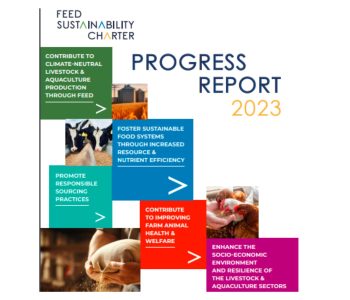Europe moves towards achieving sustainable animal nutrition
FEFAC has released its third report on Progress in Feed Sustainability, sharing strategies to promote sustainable animal nutrition.
Within the framework of its 2030 Food Sustainability Charter, FEFAC has published its third report on Progress in Feed Sustainability. In this document, the organization highlights the objectives achieved over the past year in Europe.
Furthermore, FEFAC (The European Feed Manufacturers’ Federation) expresses its commitment to accelerating processes that lead to more sustainable practices in European livestock and aquaculture.
These strategies encourage enhanced animal nutrition to align with the changing expectations of society and consumers, who are progressively seeking more eco-friendly approaches.
Firstly, FEFAC President Pedro Cordero states:
“… the third progress report is dedicated to facilitating the implementation of FEFAC’s Food Sustainability Charter ambitions. We would like to draw the attention of all stakeholders in the food chain to the solutions available in the feed industry to assist our partners in the livestock value chain in addressing the sustainability and food security challenges we collectively face.”
In this context, FEFAC emphasizes the need to carry out a productive green transition in the sector as soon as possible. Regarding Spain, Cordero explains:
“We are fully prepared to support the working priorities of the Spanish Presidency of the EU Council. In particular, their goal to strengthen Europe’s open strategic autonomy (OSA) in food, energy, climate, and the digital economy.”
The information regarding “Advanced Feeding Strategies for Enhanced and Circular Sustainable Livestock and Aquaculture Production” is categorized into four key areas:
- All farm species
- Monogastric animals
- Ruminants
- Fish
Each of these divisions offers valuable insights into enhancing the well-being of specific animals while tackling sustainability issues. In this context, their recommendations stem from feeding strategies proposed by FEFAC’s members in autumn 2022, all of which are comprehensively accessible on FEFAC’s website.
You may also like to read: “FEFAC publishes illustrated feed stats: «From Farm to Table”
